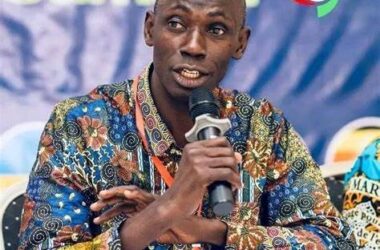By Philip Buda Ladu
A high-level workshop convened in Juba on Tuesday, emphasizing the indispensable role of women’s leadership in South Sudan’s ongoing constitution-making process.
The high-level workshop focused on enhancing women’s leadership in South Sudan’s constitution-making process, with key figures emphasizing its paramount importance for the nation’s future.
Keynote speakers emphasized that, meaningful inclusion of women is not only a matter of rights but a vital necessity for building a stable and inclusive future for the conflict-ridden nation.
Amb. Berhanu Kebede, Chief of Staff of the Reconstituted Joint Monitoring and Evaluation Commission (RJMEC), opened the symposium by highlighting the fundamental right of women to actively participate in shaping the laws that govern them.
He stressed that this workshop comes at a critical juncture, as South Sudan grapples with a fragile transitional period marked by persistent hostilities in some regions.
Amb. Kebede called for “bold and farsighted leadership, cessation of hostilities, de-escalation of violence, inclusive political dialogue, and reconstitution of Agreement implementing mechanisms” to ensure the full implementation of the Revitalized Peace Agreement and pave the way for the scheduled democratic elections in December 2026.
He voiced concerns over ongoing conflicts hindering progress on crucial tasks, including the formation of a permanent constitution.
Amb. Kebede reiterated that women’s involvement is not merely a policy preference but a fundamental right enshrined in international treaties such as CEDAW and the Maputo Protocol.
He further highlighted the particular urgency in South Sudan, given women’s disproportionate suffering during the conflict, including displacement, loss of livelihoods, and gender-based violence, alongside their exclusion from decision-making.
The RJMEC Chief of Staff underscored that the Revitalized Agreement on the Resolution of the Conflict in the Republic of South Sudan (R-ARCSS) recognizes this imperative through specific gender provisions and the commitment to 35% affirmative action for women’s representation at all levels of the constitution-making process.
He also noted the significance of the Women’s Empowerment Bill and the Women’s Enterprise Fund Bill in fostering an enabling environment for women’s civic engagement.
“Women as the guardian of the family and the nation as well as flag bearer of lasting peace in society, any political, economic, and social transformation cannot succeed without their active and inclusive participation,” Amb. Kebede affirmed.
Echoing this sentiment, Undersecretary of the national Ministry of Gender, Child and Social Welfare, Esther Ikere Eluzai emphasized the historical underrepresentation of women in constitution-making.
“Women’s representation in the constitution-making process has always been under-represented,” she stated in her keynote address.
“Nowadays, it is becoming a crucial element of recognizing how women will participate in a just and effective constitution. For South Sudan, women’s inclusion is very crucial because women have suffered the brunt of the conflict.”
Ikere further pointed out the systemic underrepresentation of women not only during the constitution-making process but also in subsequent steps.
“So, it positions South Sudan very well in order to participate in the constitution-making process,” she added, highlighting the potential for this workshop to be a turning point.
Deputy Special Representative of the UN Secretary-General, Mr. Guang Cong, also delivered a powerful message, emphasizing the collective responsibility to address this historical imbalance.
“This workshop is our collective opportunity to contribute to changing this situation,” he asserted. “Together, we must challenge these barriers, amplify women’s voices, and equip women leaders across civil society, government, and constitutional bodies with the tools, knowledge, and networks to shape the future of this country.”
The workshop, attended by key stakeholders including Hon. Dr. Riang Yer Zuor, Chairperson of the National Constitutional Review Commission, and Ms. Delphine Serumaga, Country Representative of UN Women South Sudan, aims to develop concrete strategies to ensure women’s meaningful and effective participation in shaping South Sudan’s permanent constitution.
The collective message from the opening remarks underscored a shared commitment to empowering women’s voices as a crucial step towards a more peaceful, prosperous, and inclusive South Sudan.



